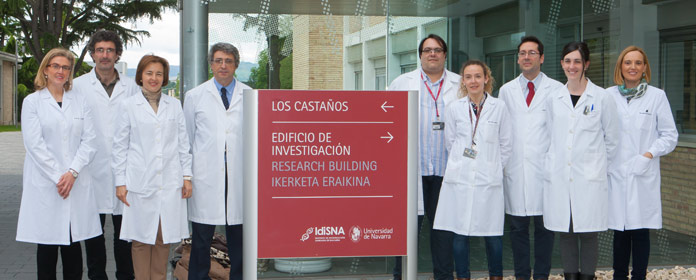Conventional breakfasts have "their days numbered".
The research center in Nutrition (CIN) University of Navarra develops different programs of study on personalized nutrition applied to the first meal of the day.

PHOTO: Manuel Castells
The days of conventional breakfasts are numbered. So say scientists from the research center in Nutrition of the University of Navarra, who are developing different programs of study on Personalized Nutrition applied to the first meal of the day.
They analyze the convenience of having breakfast as soon as you get up, whether the first meal of the day should be based on the conventional model of dairy products, cereals, fruits or meat products, and the importance of controlling the combination of different foods depending on the content of carbohydrates, proteins or fats that are ingested.
Taking as a starting point different programs of study -the last of them published this year by British Medical Journal- the group of researchers (who are part of research center at network CIBEROBN) has been analyzing different types of bread, meat products, compotes and fruits and vegetables common in breakfasts with volunteers participating in fasting since 2017. "The bibliography we handle leaves no room for doubt: we have many preconceived ideas about what is the best breakfast. In fact, there is also the idea, not necessarily true -this is what we are going to study in our projects- of what to have for breakfast and it is also convenient to do it in a strong way", says Alfredo Martínez, Full Professor of Nutrition.
"This may be far from the true nutritional needs of many individuals," he continues. "It also seems that it will be questioned whether the typical breakfast consisting of dairy products, fruit, cereals in the form of toast (with butter and jam, for example) or cereals alone, and even eggs and meat products, is suitable for everyone. The new programs of study shows that this breakfast subject is not suitable for everyone, but that it is necessary to apply Personalized Nutrition criteria to decide what is best for each person".
Precisely the CIN is now looking for new volunteers -people between 50 and 80 years old with normal weight or overweight- who want to participate in these programs of study of Personalized Nutrition and obtain, at its completion, the guidelines and recommendations tailored to their needs, taking into account their Genetics, preferences, possible allergies, etc.. Those interested can write to voluntariosnut@unav.es or call 948 425744.
Sugar: not only how much but from which foods it comes fromAs detailed by Professor Alfredo Martinez, the research that the research center in Nutrition of the University of Navarra "incorporates the relevant novelty of taking into account not only the nutrients separately -carbohydrates, proteins, fats, etc.- but how to combine these nutrients together so that the final blood sugar level is not too high and does not damage our health in the future".
"Personalized Nutrition allows, at final, to detect individual benefits depending on the subject breakfast, and provides guidelines to learn how to eat healthily. It is the most effective tool to prevent many diseases linked to poor diet, such as obesity, diabetes or fatty liver", concludes the expert.




